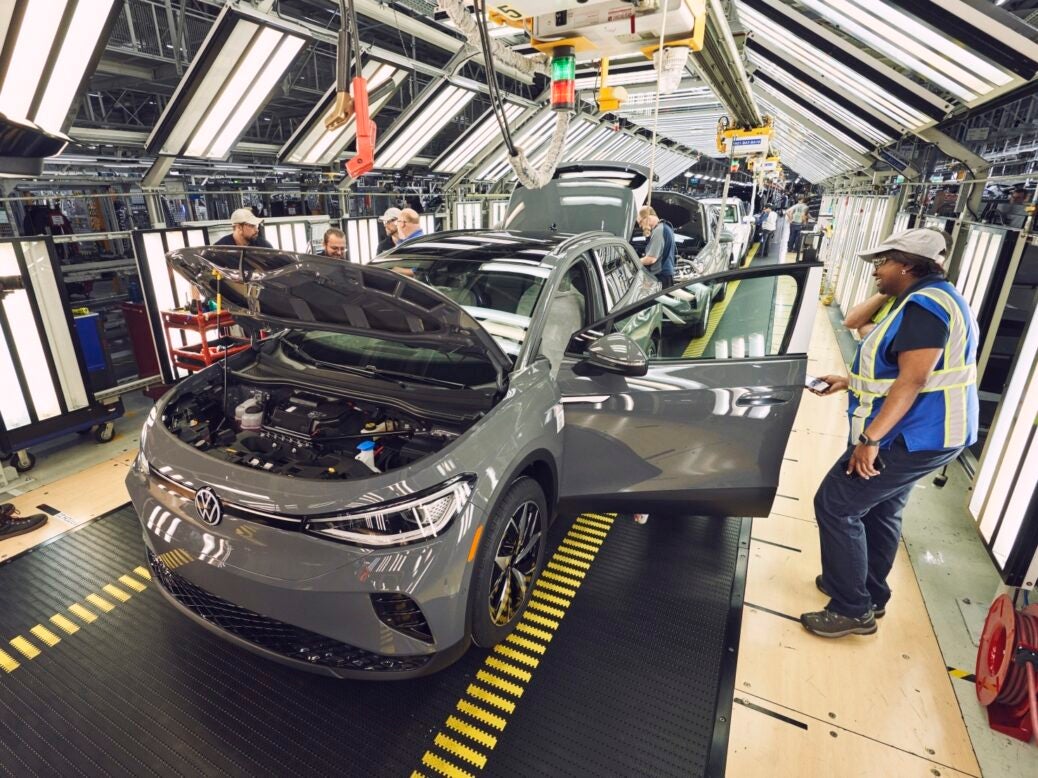
Volkswagen of America (VWoA) has started production of its electric ID.4 compact SUV in Chattanooga, Tennessee.
Replacing the Passat, the ID.4 is VW’s first electric vehicle assembled in the US.
The ID.4 is now VW Group’s most popular EV with 190,000 units delivered worldwide since launch in 2021.
The automaker is aiming for 7,000 vehicles a month from Chattanooga “later this year, with the goal to further increase output through 2023”. First US customer deliveries will be in October.
Initially, the US assembled ID.4 will be offered with either rear wheel or all wheel drive 82kWh battery form. A rear wheel drive version with 62kWh battery will go into production later in 2022, with a lower retail price.
The start of production is the result of an US$800 million investment in electrification at Chattanooga including dedicated facilities for vehicle and battery pack assembly. The factory in Tennessee is now the sixth site to produce electric VW vehicles.
American assembled ID.4s will be built from parts sourced mainly in North America, particularly the US. The vehicle includes materials and components assembled in 11 states – steel from Alabama and Ohio, interior parts from Indiana and South Carolina and electronics components from Kentucky and North Carolina.
The EV battery is supplied by SK Innovation located in Georgia.
Suppliers have invested $2.7 billion throughout the North American continent to make parts for the ID.4, including SK Innovation. 3,000 US supplier jobs have been created.
Chattanooga employs 4,000 people and is actively hiring another 1,000 during 2022 to help meet high demand for the ID.4 and Atlas SUVs. To prepare for EV build, the factory has provided 75,000 hours of workforce training on battery powered vehicle and high voltage systems.
VW has committed $7.1 billion over the next five years in North America to boost its product range, regional R&D and manufacturing. New EVs due by 2030 after the ID.4 are a fastback sedan and the ID. Buzz microbus in 2024, and new electric SUVs from 2026.
The automaker aims for 55% of US sales to be fully electric by 2030.
